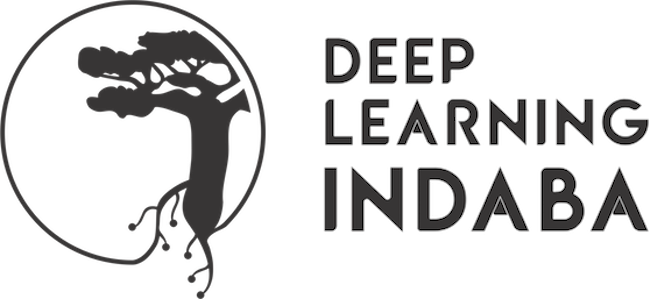2019 was my first attendance at the Deep Learning Indaba (DLI) following the organisation of the first IndabaX event in Senegal that same year. I was so excited to be going to the Nairobi airport, full of enthusiasm at the idea of meeting enthusiasts and experts in the field of artificial intelligence. This field, which fascinates me so much without me knowing why, led me to people who are ready to spend hours with you to discuss research papers and solutions developed in this field. I’ve also never seen such a rich mix of African nationalities in one place.
From the east of Africa to the west, from the north to the south, and across the centre, the DLI is a concrete example of Africa united around a single issue which is the access and the democratisation of this technology throughout the African continent. And, it’s really happening! The dream of many of Africa’s wise men [1,2] is being realised by a population of young students, researchers and professionals in the field of AI, whose average age is no more than 35.
The DLI is on a mission to further strengthen machine and deep learning on the continent through the IndabaX chapter which, in 2024, includes 47 countries across the African continent. This is an amazing opportunity for anyone passionate about technology and innovation! A Senegalese sage named Cheikh Anta Diop once said, “Oh, young people! Arm yourselves with knowledge to the teeth…”. In 2024, we are all witnessing a decisive turning point in the world with the rapid development of this technology, which is the centrepiece that will support all future technologies such as blockchain, quantum computing, mixed, extended and virtual realities. The DLI is thrilled to play a role in encouraging the mass adoption of this technology on the continent. We are truly inspired by the remarkable work of our esteemed African researchers, who are doing an incredible job advancing research in this field. We are delighted to see the incredible impact of previous movements , including Masakhane and Lanfrica, and the exciting developments of start-ups such as Instadeep and Sunbird AI (to name a few), which have harnessed the power of this community to scale up rapidly.
This year, we are welcoming all the participants to Senegal, the land of Teranga, under the slogan “Xam-Xamlé”, which means “arm yourself with knowledge and share it” in Wolof. It is in this spirit of sharing that the word Teranga was born, meaning hospitality in English. From 1 to 7 September at the Amadou Mactar MBOW University in Diamniadio. I would like to take this opportunity to thank all the leaders of the university, from the rector, Mr Ibrahima CISSE, the vice-rector, Roger Marcelin Faye, and Mr SARR, head of the UAM CROUS, who did not hesitate to support and become our official academic partner for this year’s event, right down to the last of the new students, who will no doubt serve as a receptacle for relaying the DLI’s message.
Senegal is hosting this event in a very favourable context with the validation of the National AI Strategy and the National Data Strategy, supported by the Ministry of Telecoms, Communication and Digital. This is an amazing opportunity for Senegal to showcase its cutting-edge technology and innovation! Senegal’s AI ecosystem is booming! It’s one of the most dynamic in West Africa, with the presence of some of the most exciting communities, including IAS, WiMLDS Dakar,and Galsen AI. Galsen AI is the most recognised because of its achievements and its relentless commitment to advancing this technology. I’d like to take a moment to say hello to my fellow co-founding members: Thierno Diop, Elias Waly Ba, Jean Michel Ahmad Sarr, Ouseynou Mbaye, Awa LY, Leyla Salim, and Derguene Mbaye.
The DLI is a fantastic opportunity for Senegal to really make its mark on the global stage. It’s a clear sign that the country is ready to become a leading hub for excellence in this field, in West and Francophone Africa.
At the DLI, we build together!
– Daouda Tandiang Djiba, General Chair of the 2024 for the Deep Learning Indaba. June 2024.
Note from the Editor: Bataxal means ‘letter’ in Wolof, one of the most widely spoken languages in Senegal
